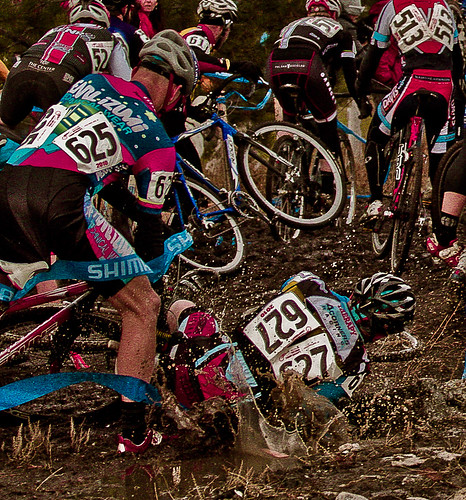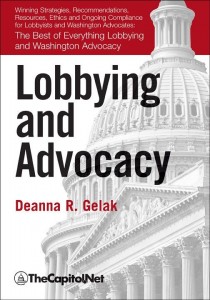There is a distinctive life cycle in lobbying. The moment a bill is introduced, interest groups that track that issue will begin lobbying the legislation related to it. Often, reporters monitor congressional committee consideration quite closely and will pose questions to members of Congress regarding their position on that legislation. As increased public awareness is directed to the measure as a result of the media and interest groups, constituents learn more about the legislation and will then ask their own members of Congress to identify their position.

Most members of Congress have decided their position on a piece of legislation by the time a bill moves to the floor. As a result, communications must be made as early as possible within the legislative process. The astute lobbyist begins the communications process before a member formulates their position on a bill.
You will have far more influence shaping member votes when you concentrate your efforts early in the legislative cycle. However, even when you are able to achieve victories early on this is not an indication that you can stop working. Lobbying, press and constituent pressures intensify immediately before a vote and can result in significant changes in position as well as the degree of support offered to legislation.
 The first stage of the lobbying life cycle involves planning and strategy. This includes surveys, research and analysis of issues. The second stage involves education and advocacy, including testimony, letters to Capitol Hill, personal visits, advertisements, emails and mobilizing grassroots efforts. During the third stage, you work on issue maintenance. At this stage you track developments in states as well as courts, while keeping an eye on public opinion.
The first stage of the lobbying life cycle involves planning and strategy. This includes surveys, research and analysis of issues. The second stage involves education and advocacy, including testimony, letters to Capitol Hill, personal visits, advertisements, emails and mobilizing grassroots efforts. During the third stage, you work on issue maintenance. At this stage you track developments in states as well as courts, while keeping an eye on public opinion.
The all important vote will occur during this final stage. During this stage, you focus on determining the next step. This can include whether the measure will move to the other chamber, joint House-Senate Conference Committee, Presidential consideration, implementation, etc.
Courses
- Congressional Operations Briefing – Capitol Hill Workshop
- Congressional Dynamics and the Legislative Process
- Drafting Federal Legislation and Amendments
- Understanding Congressional Budgeting and Appropriations
- Advanced Legislative Procedure
Publications
CongressionalGlossary.com, from TheCapitol.Net
For more than 40 years, TheCapitol.Net and its predecessor, Congressional Quarterly Executive Conferences, have been teaching professionals from government, military, business, and NGOs about the dynamics and operations of the legislative and executive branches and how to work with them.
Our custom on-site and online training, publications, and audio courses include congressional operations, legislative and budget process, communication and advocacy, media and public relations, testifying before Congress, research skills, legislative drafting, critical thinking and writing, and more.
TheCapitol.Net is on the GSA Schedule, MAS, for custom on-site and online training. GSA Contract GS02F0192X
TheCapitol.Net is now owned by the Sunwater Institute.
Teaching how Washington and Congress work ™

